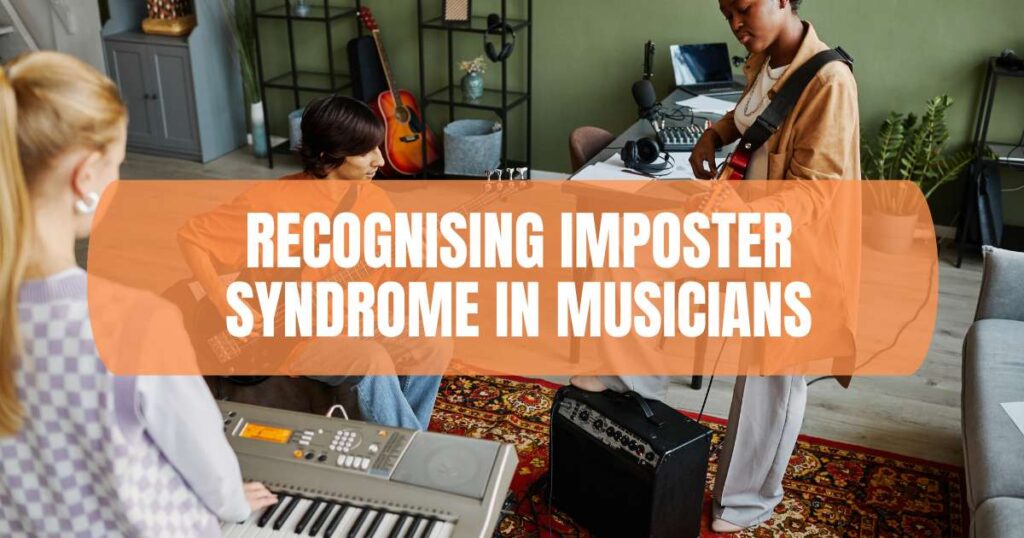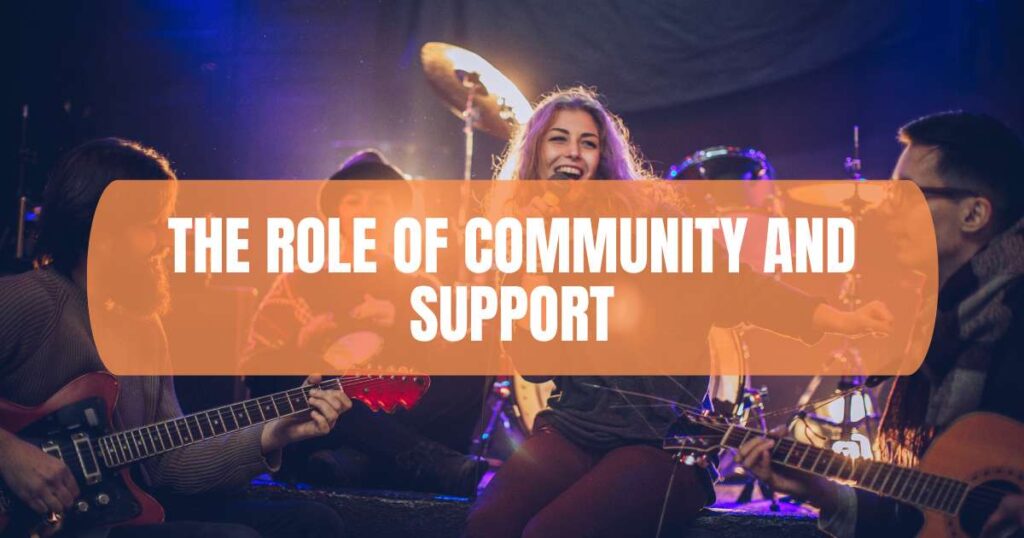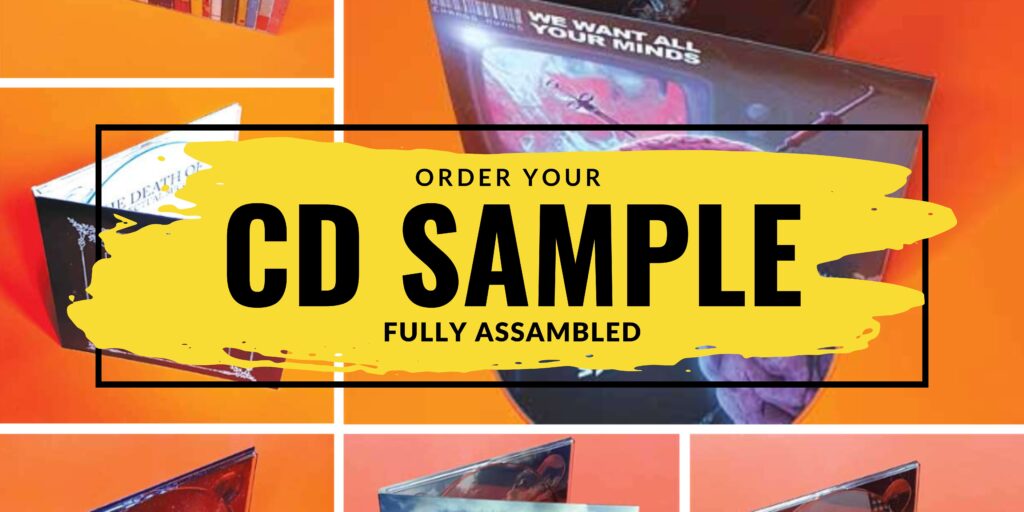
How I Deal With Imposter Syndrome As A Musician
Feeling like a fraud is something many musicians go through. This is called imposter syndrome, and it’s more common than you might think among creatives. This article shares simple steps to overcome self-doubt and build confidence in your music career.
What Is Imposter Syndrome?

Imposter syndrome is the belief that your success isn’t earned. Many musicians feel like they don’t belong or fear being “found out” as a fraud. It clouds achievements, making talent seem like luck or timing rather than skill and hard work.
This can lead to constant self-doubt and feelings of insecurity, even for highly skilled or experienced performers.
I have written eleven books, but each time I think, ‘Uh oh, they’re going to find me out now.’”—Maya Angelou
Among musicians, imposter syndrome often stems from perfectionism and comparing oneself to others’ abilities. The pressure to perform flawlessly or match industry standards adds fuel to this mindset.
Over time, it impacts confidence in music-making and limits creative growth outside one’s comfort zone.
Recognising Imposter Syndrome in Musicians
Common triggers for musicians

Musicians often face challenges that trigger self-doubt. These triggers can lead to imposter syndrome and feelings of inadequacy.
- Fear of making mistakes: Performing live or recording new music can feel stressful. Any small error might create a fear of not being good enough.
- Comparing with others: Seeing successful musicians can cause feelings of “I’m not talented enough.” Social media often increases this pressure.
- Fear of failure: Many musicians worry about failing in front of an audience or peers. This fear can lower their confidence over time.
- Perfectionism: Setting extremely high standards can feed imposter syndrome. Some artists feel they must meet impossible goals to be truly accomplished.
- Criticism from others: Harsh feedback, especially early in a career, often makes musicians question their abilities and decisions.
- Pressure to perform flawlessly: Constantly needing to prove skills during concerts, gigs, or studio sessions creates stress and anxiety.
- Attributing success to luck: Many downplay their hard work by thinking they’re just fortunate to be where they are—even when it’s not true.
- New roles or opportunities: Taking on fresh challenges like performing as a soloist or leading a project can bring up doubts about capability.
- Negative thoughts about talent: Feeling they don’t deserve praise—or worrying they’ll be exposed as a fraud—often leads some to dismiss their achievements.
- Competition within the industry: The fast-paced nature of the music industry sometimes causes talented individuals to question if they belong at all.
Each trigger affects musicians differently but recognising them is the first step to dealing with imposter syndrome effectively!
Signs you might be experiencing it
Imposter syndrome often sneaks up on musicians unexpectedly. It can affect their confidence and make them question their own abilities.
- Feeling like a fraud, even after great performances or accomplishments, is common.
- Constantly doubting your own musical skills or talent might signal imposter syndrome.
- Fear of being “exposed” as not truly talented may nag at you, even with praise from others.
- Comparing yourself harshly to other artists or musicians can increase feelings of inadequacy.
- Believing your success is due to luck rather than hard work shows deeper self-doubt.
- Avoiding new challenges out of fear that you’ll fail may limit growth in your career.
- Overworking to prove your worth—trying too hard to be perfect—can also reflect imposter feelings.
- Ignoring compliments or brushing off achievements might reveal a struggle with accepting credit.
Steps to Overcome Imposter Syndrome

Acknowledge and name the feeling
Feeling like a fraud can eat away at any musician’s confidence. To deal with imposter syndrome, it’s crucial to call out those feelings when they appear. Naming the emotion helps break its power and makes it easier to manage.
Instead of brushing off self-doubt, say, “I’m feeling unsure about my abilities right now.” This simple action creates awareness and stops negative thoughts from spiralling.
Many musicians suffer from imposter syndrome without realising it has a name. Labelling the feeling connects them with others who share this experience. It reminds them that fear of failure or not being good enough is common in high achievers.
Acknowledging emotions is the first step to facing self-doubt head-on—no matter how tough it feels at first.
Identify the root cause of your self-doubt
Self-doubt often stems from negative thoughts or experiences. Many musicians feel like they don’t measure up to their peers. Past criticism, failures, or comparing yourself to others can contribute to these feelings.
Imposter syndrome affects many musicians and creatives who strive for perfection. Perfectionists may fear making mistakes, while “natural genius” types worry if they need extra effort.
These fears fuel the feeling of being a fraud, even after success.
Ask yourself why you feel this way about your musical abilities. Do you think luck played a bigger role than your skill? This mindset ignores hard work and talent—key parts of any achievement in music.
Identifying these patterns helps stop self-doubt in its tracks!
Separate feelings from facts
Feelings can influence judgement, especially during performances. Imposter syndrome often convinces musicians they lack talent, even when facts indicate otherwise. A musician might feel inadequate after one mistake on stage but overlook the hours of successful rehearsals or positive feedback from their audience.
To address this, focus on evidence—like mastering a challenging piece of music or reflecting on past accomplishments.
Negative self-talk also makes it harder to distinguish emotions from reality. Instead of allowing self-doubt to dominate, write down factual achievements, no matter how minor. For example, recall the time you performed successfully in front of a large audience or received supportive feedback about your work from respected peers.
Facts demonstrate your capability and ensure you are not defined by fleeting emotions.
Keep track of your accomplishments
Write down every success, big or small. Played in front of a crowd for the first time? Finished a new song? Note it. These moments show growth and remind musicians they are capable, even if self-doubt creeps in.
A journal or list can help combat feelings like you don’t belong. Seeing achievements on paper separates facts from negative thoughts. It builds self-confidence and helps reframe the fear of not being good enough into proof of progress.
Techniques to Build Confidence

Use positive affirmations
Affirmations help rewire how musicians think about themselves. Saying phrases like “I am a skilled musician” or “My music matters” daily builds self-worth. It shifts the focus from feelings of being a fraud to recognising talent.
Practising affirmations can silence self-doubt by replacing it with positive thoughts.
Words have power. Repeating affirmations encourages belief in one’s abilities—even on tough days. Musicians facing imposter syndrome often overlook their growth and skills, but these simple statements work as gentle reminders: You’re more than enough for the stage you stand on.
Reframe your relationship with failure
Failure does not mean a lack of talent or worth. For musicians, it can simply be part of the creative process. Mistakes happen—on stage, in practice, or during recording sessions.
Instead of fearing them, treat failures as lessons and opportunities for growth.
Accept that everyone makes mistakes, even the artists you admire. Each misstep teaches something valuable about your craft or performance. Shifting focus from perfection to progress helps build confidence while reducing the fear of being exposed as a fraud.
Embrace opportunities outside your comfort zone
Stepping outside your comfort zone can feel terrifying, but it’s where real growth happens. Performing in front of new audiences or trying a genre you’ve never explored can challenge self-doubt.
It may seem risky, yet each step builds confidence and silences that internal voice saying you don’t belong.
Taking on these challenges helps musicians recognise their worth beyond perfection. Every small success—whether completing a tough rehearsal or sharing unfinished work—proves you’re more than “luck”.
You don’t need to be perfect; even mistakes contribute to progress and prove you’re the real deal.
The Role of Community and Support

Seek mentorship from experienced musicians
Experienced musicians can guide others through struggles like imposter syndrome. They have faced similar challenges and know the feelings linked to self-doubt. Their advice can help others separate facts from feelings and see their worth clearly.
Learning how they overcame their issues builds hope and confidence in those seeking guidance.
Support from someone who understands makes a huge difference. A professional musician might offer tips on handling pressure or share strategies to stay grounded during tough times.
These real-life lessons validate emotions and show that battling imposter syndrome is common—even among top talents in music.
Share your feelings with peers
Talking openly with peers can make a big difference. Many musicians experience imposter syndrome and feel like they don’t belong. Sharing these thoughts helps break the silence and eases the burden.
Honest conversations show others that this is a common experience for many musicians, not just one person’s struggle.
Peers provide comfort, validation, and fresh perspectives. Discussing fears or doubts with those who understand often leads to reassurance you’re not alone. It creates stronger connections within the music community.
Celebrating small wins together helps combat self-doubt—every achievement counts, no matter how small it feels at first!
Celebrate collective achievements
Sharing wins with a community can boost confidence and ease self-doubt. Musicians often feel like a fraud, but celebrating team achievements reminds them of their value. Whether it’s completing an album or hosting a successful performance, each milestone counts.
Praising others’ work strengthens connections and builds trust. This group validation creates a sense of belonging, which fights feelings of being “found out.” Together, musicians can rewrite the narrative—it’s not luck; it’s talent and effort that got them there.
Redefining Success as a Musician


Focus on personal growth over perfection
Musicians often feel like they need to do everything perfectly. This pressure can feed imposter syndrome and self-doubt. Focusing on personal growth instead helps shift the mindset.
Growth means learning, improving, and enjoying the process of making music—rather than chasing flawlessness.
Perfection is unrealistic and exhausting. Instead, musicians should set small, realistic goals that build confidence over time. Tracking progress—not perfection—shows how far a person has come in their musical journey.
Each mistake becomes an opportunity to learn, not a reason to question one’s worth or ability to perform.
Personal growth also allows musicians to explore beyond their comfort zones without fear of failure. Trying new genres or instruments can spark creativity while reducing fears of “you’re a fraud” thoughts creeping in.
Accepting that luck plays some role but doesn’t overshadow talent encourages internalising one’s sense of worth and strengthening both skills and confidence long-term!
Set realistic goals and expectations
Setting small, clear goals can help musicians feel more in control. Instead of chasing perfection, focus on personal growth. For instance, mastering a new chord progression or writing one song per month can be realistic achievements.
These smaller steps reduce the pressure that often leads to imposter syndrome.
Unrealistic expectations only feed self-doubt and fear of making a mistake. Accept that luck and hard work both play roles in success—neither cancels the other out. Giving yourself credit for effort rather than unattainable outcomes helps build confidence over time.
All in All
Dealing with imposter syndrome takes time, patience, and effort. Musicians often face this challenge, but it doesn’t define them. Acknowledging the feelings and taking small steps can make a big difference.
Everyone deserves to celebrate their successes—big or small. Most importantly, no one needs to face these struggles alone.
Cheers,
Josh
FAQ
What are some effective ways to find band members locally?
You can meet musicians in your local area through community notice boards, music schools, and local bands looking for new members. Musicians wanted ads in newspapers or online forums also help you find people.
How can I use online platforms to find a band to join?
Online collaboration sites like Reddit—where anonymity is respected—are great places to look for local musicians. You can post that you're looking for a drummer or guitarist and connect with thousands of drummers and other quality musicians.
Are there specific websites where bands look for musicians?
Yes, many websites cater specifically to bands and musicians seeking each other out. These include dedicated musician classifieds where you can send messages directly to interested parties.
Is it possible to start a band if I'm already in one?
Absolutely! Many people who are already in a band still want to form another group together with different musical styles or interests... it's all about finding likeminded individuals who share your passion.
Can social media help me find bandmates?
Social media is very useful when you're looking for someone interested in making music with you. Group chats on platforms like Facebook allow you to reach out quickly within your network or even beyond it.
How do privacy policies affect my search for band members online?
When using online tools, always check the privacy policy before sharing personal details such as an email address associated with your account; this ensures your information remains secure while connecting with potential collaborators.
The Big Lists Of Music Promo Contacts
Includes PR companies, UK promoters & UK booking agents. Everything you need to put your band on the map.
Access Lists
Hello, I’m Josh, and I’ve been honing my graphic design skills for almost 15 years now, catering to the needs of bands and businesses alike. What really fascinates me is the business aspect of the music industry. In addition to my design work, I also happen to play the Hammond organ, and I strive to share my knowledge through helpful articles that I write exclusively for you all!





